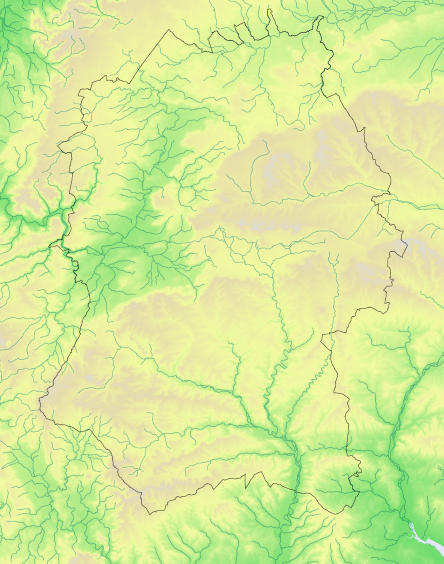Cetti's Warbler Cettia cetti
Winter distribution change
Very local resident since 1987, colonised Britain from France in early 1970s
Atlas species lists
- Breeding distribution 1995–2000
- Summer abundance 1995–2000
- Winter distribution 1995–2000
- Winter abundance 1995–2000
- Breeding distribution 2007–2012
- Summer abundance 2007–2012
- Winter distribution 2007–2012
- Winter abundance 2007–2012
- Breeding distribution change
- Summer abundance change
- Winter distribution change
- Winter abundance change
More Cetti's Warbler maps
- Breeding distribution 1995–2000
- Summer abundance 1995–2000
- Winter distribution 1995–2000
- Winter abundance 1995–2000
- Breeding distribution 2007–2012
- Summer abundance 2007–2012
- Winter distribution 2007–2012
- Winter abundance 2007–2012
- Breeding distribution change
- Summer abundance change
- Winter distribution change
- Winter abundance change
More maps for this atlas
Map explanation
This map shows the changes which occurred in the winter distribution of the species between 1995-2000 and 2007-2012, but only in the limited selection of tetrads that were surveyed in winter for Birds of Wiltshire (Wiltshire Ornithological Society 2007).
Key
Status
Nos tetrads

Absent to present
13
3%

Present in both
0
0%

Present to absent
0
0%

Not surveyed
Until the 1920s Cetti’s Warblers bred only in a range extending from North Africa, Iberia and the Mediterranean countries, through Asia Minor, east to Afghanistan. They then began a northward expansion through western France. They reached the English Channel coast in 1961, making their first British appearance in Hampshire in March that year. British breeding was first confirmed in Kent in 1972 and by 2000 they had spread to most counties south of a line from the Wash to southern Wales. Bird Atlas 2007-2011 recorded them beginning to appear in North Wales and the Midlands.
In Wiltshire the first record occurred at Coate Water in October 1980 and the second at the same location a year later. There were further records in 1985 at Steeple Langford and Britford, and breeding was first confirmed in 1987 at Petersfinger. The 1988-91 Breeding Atlas recorded breeding in one 10km Wiltshire square and presence in three more. From then on they were regular on the Salisbury Avon and along the River Kennett, at the Cotswold Water Park and at Corsham Lake. Birds of Wiltshire recorded them in 13 tetrads with breeding in seven. Twenty years later, WTA2 recorded them in 45 locations with breeding confirmed or probable in 23 of them and the expansion has continued: the 2017 Wiltshire Bird Report (Hobby 44) recorded them at 75 sites in the county.
References
The following references are used throughout these species accounts, in the abbreviated form given in quotation marks:
“1968-72 Breeding Atlas” – Sharrack, J.T.R. 1976: The Atlas of Breeding Birds in Britain and Ireland. T. & A. Poyser
“1981-84 Winter Atlas” – Lack, P.C. 1986: The Atlas of Wintering Birds in Britain and Ireland. T. & A. Poyser
“1988-91 Breeding Atlas” – Gibbons, D.W., Reid, J.B. & Chapman, R.A. 1993: The New Atlas of Breeding Birds in Britain and Ireland 1988-91. T. & A. Poyser
“Birds of Wiltshire” – Ferguson-Lees, I.J. et al. 2007: Birds of Wiltshire, published by the tetrad atlas group of the Wiltshire Ornithological Society after mapping fieldwork 1995-2000. Wiltshire Ornithological Society.
“Bird Atlas 2007-2011” – Balmer, D.E., Gillings, S., Caffrey, B.J., Swann, R.L., Downie, I.S. and Fuller, R.J. 2013: Bird Atlas 2007-2011: the Breeding and Wintering Birds of Britain and Ireland
“WTA2” – ("Wiltshire Tetrad Atlas 2 ") the present electronic publication, bringing together the Wiltshire data from “Birds of Wiltshire” and “Bird Atlas 2007-11”, together with data from further fieldwork carried out in 2011 and 2012.
"Hobby" - the annual bird report of the Wiltshire Ornithological Society.

